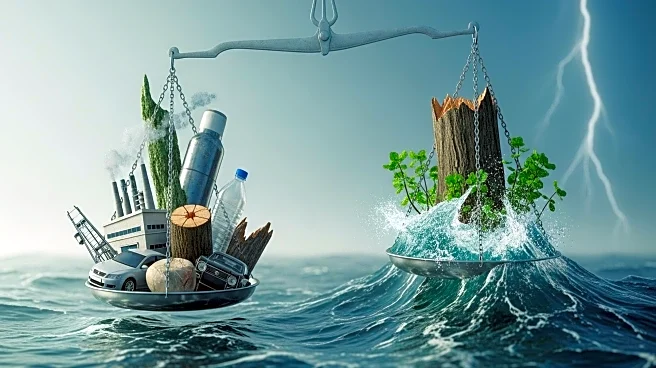What is the story about?
What's Happening?
A study by UC Santa Barbara researchers warns that the cumulative impact of human activities on the oceans could double by 2050, pushing marine environments toward a dangerous threshold. The study highlights the effects of ocean warming, fisheries biomass loss, sea level rise, acidification, and nutrient pollution. Coastal areas, particularly in the tropics and poles, are expected to experience the fastest changes. The research emphasizes the need for policies to reduce climate change and strengthen fisheries management to mitigate these impacts.
Why It's Important?
The potential tipping point for oceans poses significant challenges for human societies and ecosystems. Coastal areas, which derive substantial value from the ocean, will bear the brunt of these impacts, affecting food security, livelihoods, and economic stability. The study underscores the urgency of addressing climate change and managing human activities to preserve marine environments. It also highlights the interconnectedness of global ecosystems and the need for international cooperation to protect ocean health.
What's Next?
The study calls for immediate action to reduce human impacts on the oceans, including enacting policies to address climate change and improve fisheries management. Researchers advocate for prioritizing the management of habitats expected to be heavily impacted, such as salt marshes and mangroves. The findings serve as a warning to alter future trajectories and encourage proactive measures to safeguard marine environments.
Beyond the Headlines
The study reveals the complexity of human impacts on the oceans and the importance of comprehensive models to understand these effects. It challenges the perception of oceans as limitless resources and highlights the need for sustainable practices. The research may influence policy decisions and inspire efforts to balance human activities with environmental preservation.
















